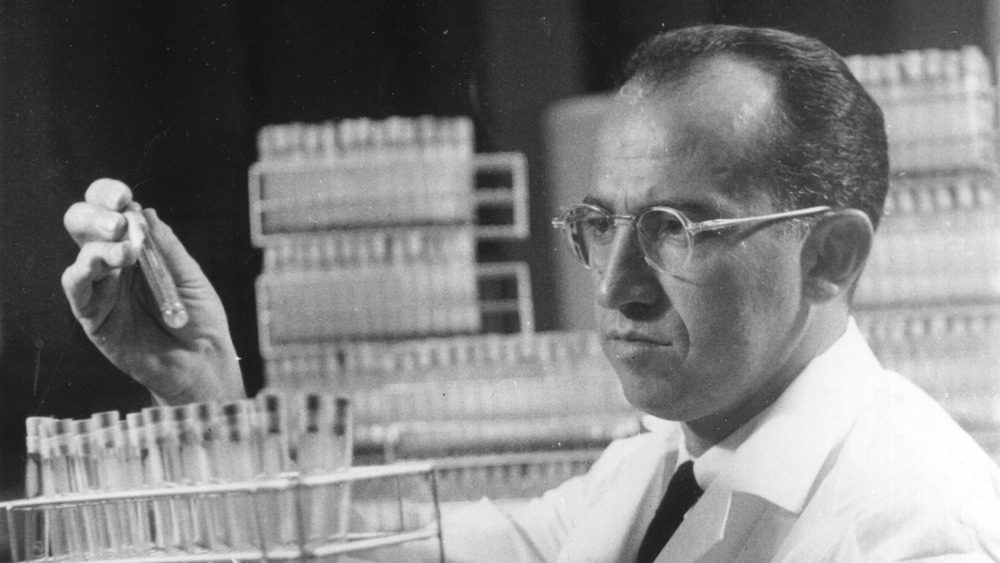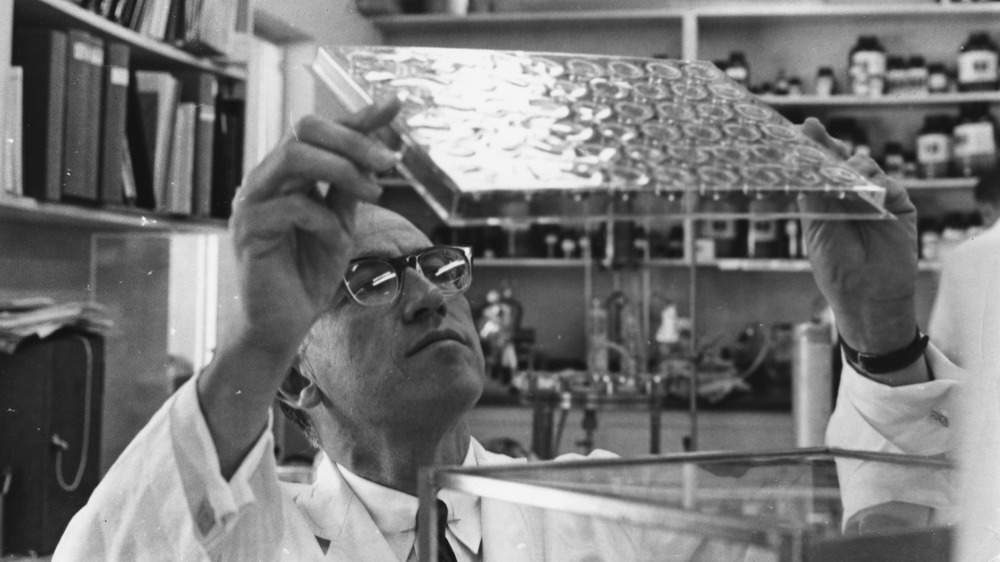Why Jonas Salk Was Often Despised When He Was Alive
In the 1940s and 1950s, the world was gripped by an epidemic. The polio virus was ravaging through homes, targeting children, and sometimes confining them to life inside an iron lung.
You would think that the man who developed the vaccine for polio, Dr. Jonas Salk, would be celebrated and showered with awards. In reality, Dr. Salk, who did become a celebrity of sorts, was disliked by his peers and was even denied a Nobel Prize.
According to New Atlantis, Dr. Salk had always wanted to change the world, even as a child. His brothers even teased him and called him "Little Jesus." Growing up in the aftermath of the 1918 influenza pandemic, Salk had been haunted by images of classmates sickened by that virus.
After graduating from medical school in New York, Dr. Salk joined a team studying a potential vaccine against the flu. In 1947, Dr. Salk became a professor of bacteriology at the University of Pittsburgh, explained Encyclopedia Britannica. There he began his research into polio. Several scientists from other universities worked on finding the different strains of polio. He demonstrated that some strains that had died could not induce the disease, but could help produce anti-bodies. Since it was an epidemic, polio research attracted many donors. Dr. Salk and his team benefited from a grant from March of Dimes. They needed the money because the trial involved millions of test subjects, mostly children. Two years after Dr. Salk first developed the vaccine, it was declared safe and effective.
A tainted vaccine
Dr. Salk went from ambitious researcher to celebrity almost overnight. He was lauded in the White House and the public alike. Dr. Salk told the New York Times that he disliked his fame and felt it set him apart from his colleagues too much.
Even before the polio vaccine was approved, other scientists questioned Dr. Salk's abilities. New Atlantis noted that the scientist Dr. Albert Sabin, who created an oral polio vaccine, admitted that Dr. Salk's discovery was groundbreaking, before tearing into Dr. Salk's findings and methods. Many researchers felt Dr. Salk's constant appearances on radio and TV talking about his vaccine was a sign of a glory hound. Doctors, some of whom had reservations about the vaccine, felt pressured to administer the vaccine anyway, simply because the parents had heard Dr. Salk talk about it.
Scientists began to mockingly call the vaccine the Salk vaccine, attaching his name to it in case it failed. Dr. Sabin claimed Dr. Salk's version of the vaccine wouldn't confer long-term immunity, while gossip mongers would later say the trial was dangerous and the vaccine could potentially kill its subjects. There were reports of patients developing paralytic polio during the trials caused by improperly prepared shots.
Even when the government approved Dr. Salk's vaccine, other researchers still felt he was too ambitious. Dr. Salk believed polio could be eradicated, but even his mentor said it was impossible.
Maligned in his own institution
The mentor was wrong. In 2019, the World Health Organization announced all but one strain of polio had been eliminated, thanks to global vaccination efforts.
Despite developing the first polio vaccine and becoming a celebrity, Dr. Salk was never honored for his discovery. He was denied entry into the National Academy of Sciences, of which Dr. Sabin became a member. Dr. Sabin later called Dr. Salk's vaccine as "kitchen work." The Salk vaccine suffered from the trial cases that developed polio, and governments would later use Dr. Sabin's work, though Dr. Salk would remain popular. The Centers for Disease Control and Prevention, however, called for the exclusive use of the Salk vaccine to further eliminate polio.
Wanting to further work on biology and society, Dr. Salk established the Salk Institute for Biological Studies in San Diego. The institute quickly became a destination for researchers and has produced Noble laureates. But even in his own institution, Dr. Salk was marginalized. The book Jonas Salk: A Life discussed how he was never again taken seriously as a scientist, even as he researched cures for AIDS and multiple sclerosis. Much of this has to do with his interest in biophilosphy, a mixture of biology and philosophy. He also saw his lab taken from him, and he was given a largely symbolic role in the organization bearing his name. Dr. Salk was paraded around for fund-raising.
Dr. Salk died in 1995 from heart failure, before his vaccine would once again be celebrated.


